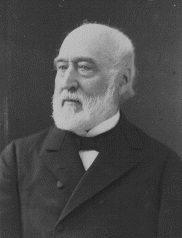Hippolyte Carnot facts for kids
Lazare Hippolyte Carnot (born October 6, 1801, died March 16, 1888) was an important French politician. He came from a famous family. His older brother, Sadi Carnot, was a scientist who helped create the study of thermodynamics. His father, Lazare Nicolas Marguerite Carnot, was a general and politician during the French Revolution and worked for Napoleon. Hippolyte Carnot himself later became the father of a French president, Marie François Sadi Carnot.
Contents
Early Life and Studies
Hippolyte Carnot was born in Saint-Omer, France. After Napoleon's final defeat in 1815, his father had to leave France. Hippolyte lived with his father in exile for a while. He returned to France in 1823.
Since he could not immediately join politics, he focused on writing and philosophy. He published a collection of poems in 1828. He also wrote about a social movement called Saint-Simonism in 1830. He even worked for a Saint-Simonian newspaper. During this time, he traveled to Britain and other European countries.
Political Career
Becoming a Deputy
In March 1839, Hippolyte Carnot was elected as a deputy for Paris. A deputy is like a representative in a country's government. He was re-elected in 1842 and 1846. He joined a group called the Radical Left. This group was against the king at the time, Louis Philippe.
Minister of Education
On February 24, 1848, Carnot supported the idea of France becoming a republic again. A republic is a country where the people elect their leaders. He was chosen to be the minister of education in the new temporary government.
As minister, Carnot worked hard to improve schools. He suggested laws to make primary school free and required for all children. He also proposed laws for the secondary education of girls. He believed that education was very important for the new republic. He said that "the minister and the schoolmaster are the two columns on which rests the edifice of the republic."
However, his ideas did not please everyone. Some people on the right side of politics and some extreme republicans disagreed with him. Because of this, he had to leave his position on July 5, 1848.
Later Political Life
In 1851, there was a political event called a coup d'état. This is when a small group suddenly takes control of the government. Hippolyte Carnot was one of the people who spoke out against it. However, he was not punished by Louis Napoleon, who led the coup.
Carnot refused to be part of the government until 1864. He did not want to swear an oath to the emperor. From 1864 to 1869, he was part of the republican opposition. This meant he worked against the emperor's government. He was not elected in 1869.
On February 8, 1871, he was elected as a deputy again. He joined a group called the Gauche républicaine. He helped create the important laws that shaped the French government in 1875. On December 16, 1875, he was named a senator for life. This meant he would serve as a senator for the rest of his life.
Hippolyte Carnot passed away on March 16, 1888. This was just three months after his oldest son, Marie François Sadi Carnot, was elected president of France.
Family and Legacy
Hippolyte Carnot wrote several books, including his own memories and memories about his father. His second son, Marie Adolphe Carnot (born in 1830), became a famous mining engineer. He also directed a well-known mining school. Marie Adolphe Carnot was recognized for his work in chemistry and became a member of the Academy of Sciences in 1895.
 | Laphonza Butler |
 | Daisy Bates |
 | Elizabeth Piper Ensley |


